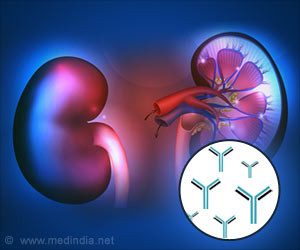A positive outlook in life may improve outcomes in patients with chronic angina - chest pain or pressure that comes on when the heart isn't getting enough oxygen, usually during physical activity.

"Feeling better about your disease process and ability to re-engage in usual activities may actually make chronic angina easier to deal with," said Alexander Fanaroff, MD, a fellow in the department of cardiology at Duke University Medical Center and the study's lead author. "Our findings suggest that if we can identify patients who are less optimistic for whatever reason--whether it's because their disease has made them despair for the future, they have uncertainty about their diagnosis, or they have multiple comorbidities--and help them feel more hopeful by focusing on what they can do, we may be able to positively affect outcomes."
Chronic angina is among the most common complaints made by patients visiting the emergency department and it can greatly impair someone's quality of life, Fanaroff said. A less optimistic view of their health may also trigger more visits to the doctor's office, contributing to more evaluation and hospital admissions.
"People will often cut back on or stop activities they like to do--tennis, playing with grandchildren, job-related tasks--either because of the pain itself or because they worry that the activity prompting the pain is dangerous [to their heart]," he said.
In this study, those who were self-described as more optimistic were 40 percent less likely to be hospitalized with angina or have a revascularization procedure compared with those who were not. While researchers cautioned that the most optimistic group of patients also tended to be healthier overall, they were still 30 percent less likely to go to the hospital or have a revascularization even after accounting for this fact.
The study analyzed data from nearly 2,400 people with chronic angina undergoing percutaneous coronary intervention (PCI) to open at least one blocked coronary artery who were enrolled in RIVER-PCI, a multi-center, randomized, double-blinded, controlled trial. RIVER-PCI tested whether taking ranolazine, a medication used to treat chest pain or pressure, in addition to usual care, could reduce hospitalizations and revascularization procedures related to chest pain compared with placebo and found no benefit. As part of this trial, patients completed a questionnaire about their overall quality of life, how frequently they had angina and how much they agreed or disagreed with the statement, "I am optimistic about my future and returning to a normal lifestyle." These same questions were asked again at one, six and 12 months.
Advertisement
Of the patients surveyed, 782 (33.2 percent) were most optimistic ("strongly agree"), 1,000 (42.4 percent) were somewhat optimistic ("agree"), 451 (19.1 percent) were undecided, and 123 (5.2 percent) were not optimistic ("disagree" or "strongly disagree"). The level of optimism reported by patients remained fairly stable over time. Compared with their less optimistic peers, those who were most optimistic reported having less angina overall and were also less likely to have had a history of heart attack, heart failure, diabetes and chronic kidney disease. The rate of the primary outcome was higher in undecided (32.8 percent) and not optimistic (35 percent) patients compared with the most optimistic patients (24.4 percent); this finding persisted after adjusting for comorbidities and baseline angina frequency.
"As a clinician, it doesn't cost anything to help patients with chronic angina focus on what they can do, letting them know that there are medications and procedures that can help them return to a normal life and continue to do the things they like to do," he said. "Bottom line: there's reason to be optimistic for patients with chronic angina, and it's important that clinicians relay that to them."
Fanaroff said a reasonable next step would be to test strategies that might encourage someone to adopt a more glass-half-full, positive outlook and track outcomes.
Fanaroff will present the study, "Association Between Optimism and Outcomes in Patients with Chronic Angina," on Saturday, March 10 at 3:45 p.m. ET in Poster Hall A/B.
Source-Eurekalert















